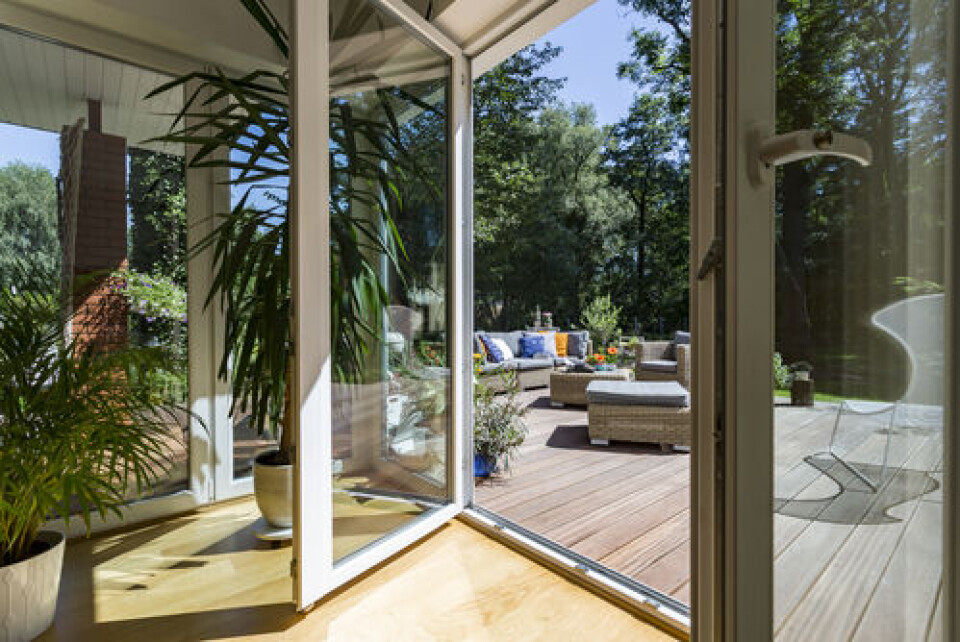-
Measures to increase tax on well-off retirees under consideration for 2026 French budget
‘Nothing is off the table’ when it comes to finding €40 billion in savings says Labour Minister
-
Paper tax forms reduced in France as more switch to online declarations
You can still request paper version for physical declaration
-
Useful vocabulary to help understand your French income declaration
These 25 words and phrases are likely to crop up
I did not get permission for veranda at French home - what do I risk?
Reader is worried about possible fines for building a garden structure without planning permission a decade ago

Reader Question: I had a 10 square metres veranda constructed at my second home in south-west France about 10 years ago and I have now found out – thanks to a neighbour who is having one built – that I was supposed to get planning permission for it. Can authorities retroactively fine me?
The good news for our reader is that as it has been more than six years since construction took place, they are in the clear in terms of France’s code de l’urbanisme, meaning they will face no legal procedures under criminal law.
However the commune itself has 10 years in which it could potentially launch a civil procedure to have the structure demolished. Our reader should check the dates carefully to see when the veranda was constructed but will most likely be in the clear for this.
France takes building permits very seriously.
People who build structures such as verandas without the correct authorisation risk a fine of at least €1,200 (and up to a legal maximum of €6,000 / square metre). In the case of repeat offences, the person risks a six month prison sentence.
Type of permission depends on size of veranda
The type of permission required depends on the size of the construction and where you live.
Note that a veranda is seen as a form of extension of the house, as opposed to a free-standing garden structure such as a shed.
If you live within the area of a commune’s PLU (plan local d’urbanisme) or similar local planning document, then you usually only need a déclaration préalable de travaux if the veranda is contained to no more than 40 square metres.
This is a simpler formality than full planning permission (permis de construire) which involves a declaration to the mairie, with tacit approval if you hear nothing within a month (two months if you are in a conservation area). You can complete this on paper or online at this link.
However, if the veranda is 20-40 square metres and it takes the total surface area of the home to more than 150 square metres, then you need full planning permission.
In areas (usually rural) not covered by a PLU, then a déclaration préalable is always needed for verandas from five to 20 square metres.
For larger verandas, you must obtain a permis de construire.
You can find a permis de construire form at this link. It must be submitted to your local mairie.
Verandas and taxes
France’s central tax authority the DGFiP states: “A veranda is enclosed by glass walls and often equipped with a heating system. It can be lived in and furnished. It is therefore taxable.”
It means that the addition of a veranda is liable to increase a property’s theoretical rental value (valeur locative cadastrale) used as the basis for the calculation of taxe foncière.
The amount it will increase the tax by varies according to the size and the commune the property is in.
You should declare it to the tax authorities within 90 days of its construction and you will then benefit from a two-year exemption from any extra taxe foncière.
A veranda will also increase the taxe d’habitation if still applicable to the household.
Read more: Who still has to pay the taxe d’habitation in France in 2022?
The taxe d’aménagement applies to all verandas with a surface area greater than five square metres and a ceiling height greater than or equal to 1.80m.
You can use this government simulator to calculate how much the taxe d’aménagement may cost you on a garden construction: Simulez la taxe d'aménagement de votre projet.
Related articles
Garden pool and veranda taxes, squatters: Four French property updates
Second home hotspots, pergolas, cracks: Five French property updates
Do swimming pools show up on French taxe foncière bills?
























